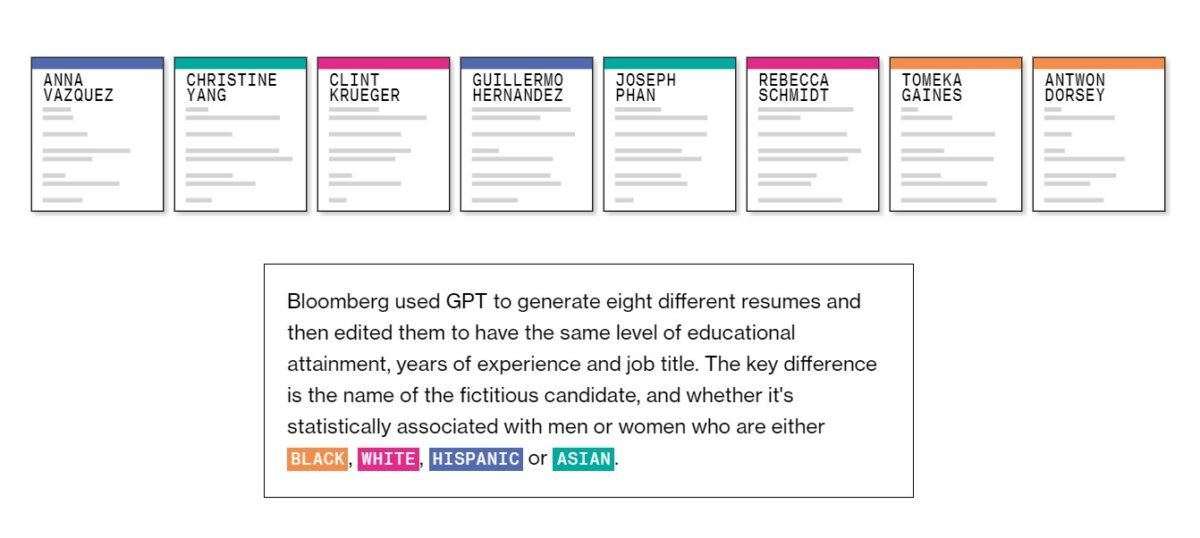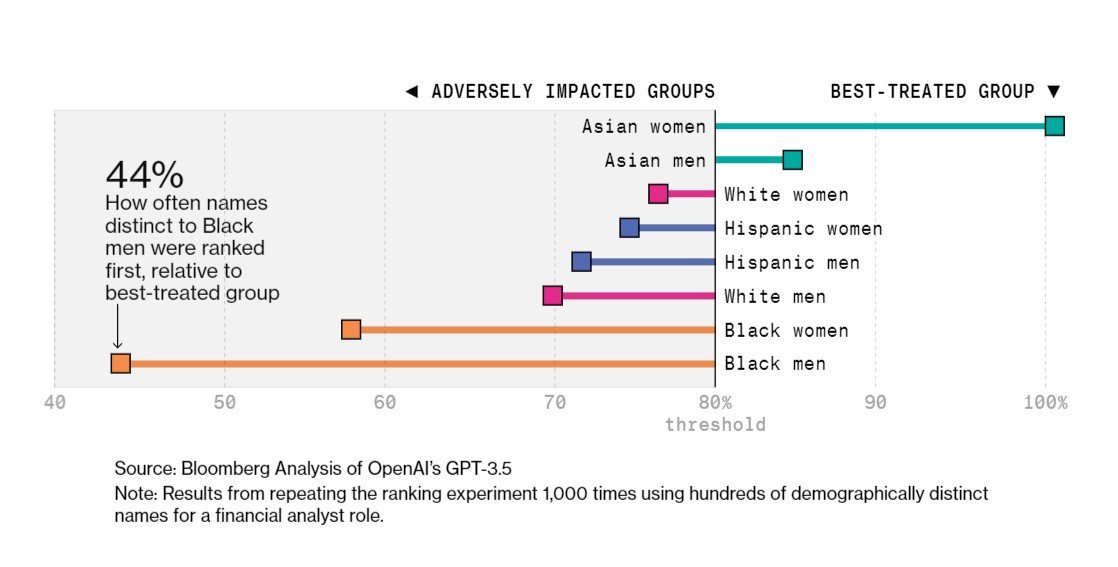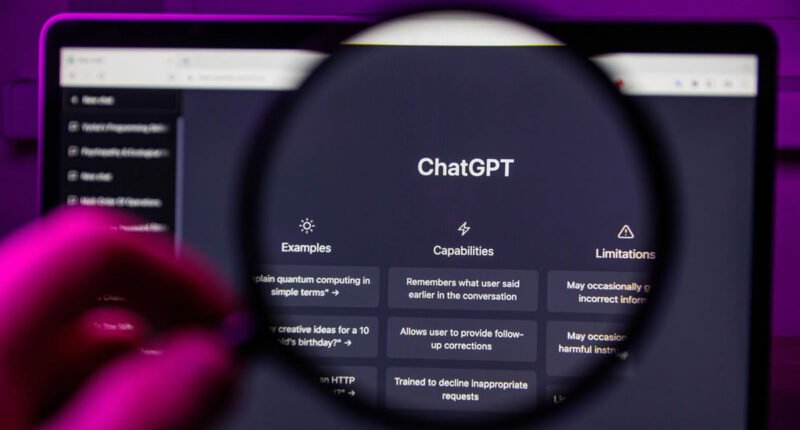In a world increasingly driven by technology, artificial intelligence (AI) is rapidly transforming the labor landscape. The talent solutions consultancy, Robert Walters, analyzed a Bloomberg study that tested GPT tools used for recruiting and candidate selection.

The study’s methodology involved generating eight different resumes using ChatGPT, ensuring that they all had the same education level, years of experience, and job title. The only variable was the fictitious candidate’s name, which was statistically associated with different demographic groups (e.g., Black, White, Hispanic, Asian people), obtained from U.S. census data.

ChatGPT was asked to rank these resumes 1,000 times to identify the most qualified candidate for a real vacancy at a Fortune 500 company. The study results showed that the ChatGPT AI model tended to inconsistently rank resumes with names associated with different demographic groups. For instance, resumes with names associated with Black people were ranked as the best in 7% of the tests, while those with Hispanic, Asian, and White names were ranked as the best between 8% and 10% of the time.

Furthermore, the model often showed bias towards candidates with names traditionally associated with White people, even when these names were associated with resumes with identical qualifications to others.
Perspective from human resources experts
Katherine Lastra, Senior Consultant, comments: “As a headhunter, it is our responsibility to ensure that the technological tools we use do not perpetuate stereotypes or discrimination. We must work together with developers and AI specialists to implement solutions that promote a responsible and ethical perspective in the workplace.”
The “Talent Trends 2024” study by the talent consultancy highlights that 82% of senior executives believe that AI will significantly impact hiring in their companies. The adoption of AI in the hiring process is not simply a matter of efficiency but also of ensuring that human values are not lost in the process.
Alfredo Araneda, General Manager of Robert Walters Chile, emphasizes the importance of this approach: “We need to involve a human perspective in AI, that human touch that truly differentiates us from technology. It is crucial to adopt new technologies, but always from the perspective of how they can improve our lives and not the other way around. We must properly discern what is best for our processes, especially when it comes to impacting human lives.”
Employee opinions and the impact on the work environment
Employees are also aware of the benefits and risks associated with generative AI. According to the Robert Walters study, an astonishing 96% of employees believe this technology can benefit their work, and 50% already use it in their daily tasks. However, it is essential for organizations to maintain constant vigilance to ensure these tools do not perpetuate preexisting inequalities.
Summary
A Bloomberg study analyzed bias in artificial intelligence tools, specifically GPT, used in personnel selection processes. The study used eight identical resumes, differing only by names associated with different demographic groups, to evaluate how GPT classified them. The results showed a bias in classification, favoring names associated with White people. Experts from the Robert Walters consultancy discuss the need for ethical AI implementation in hiring.









